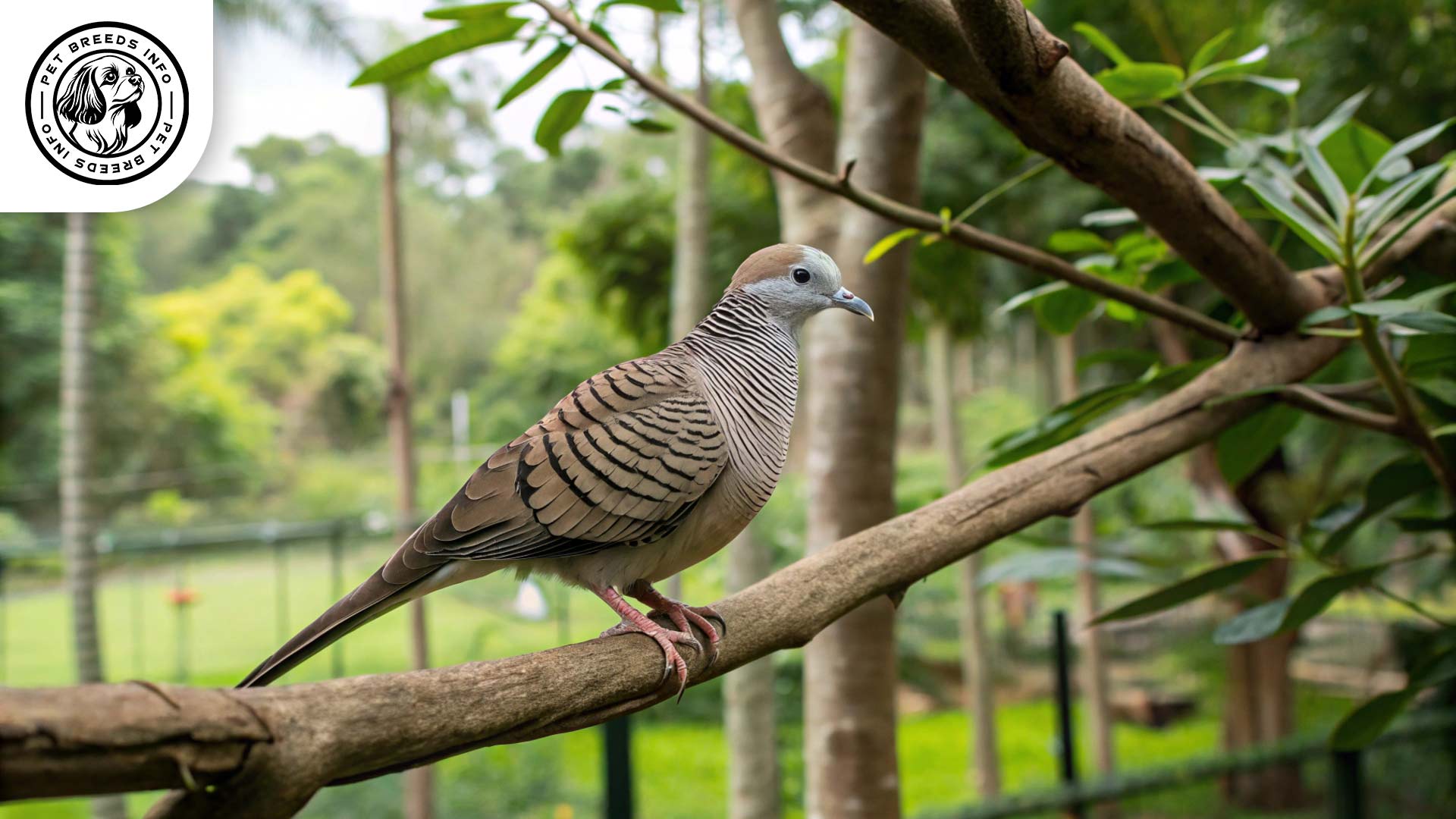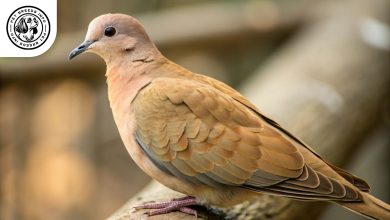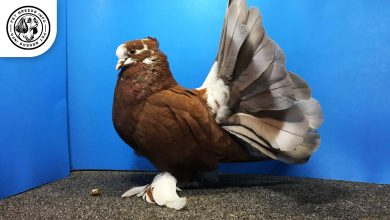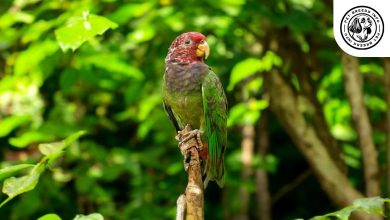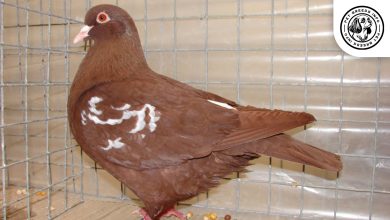Zebra Dove Bird: Personality, Lifespan, Food & Care
General Introduction of the Breed
The Zebra Dove (Geopelia striata) is a small and slender bird known for its distinctive barred plumage. It is also commonly referred to as the Barred Ground-Dove or the Peaceful Dove in some regions.
Originating from Southeast Asia, the Zebra Dove is native to Indonesia, Malaysia, Thailand, and the Philippines. Due to its adaptability and popularity as a pet, it has been introduced to other tropical and subtropical regions worldwide.
Historically, Zebra Doves were highly valued for their soft and pleasant cooing sounds, often kept by bird enthusiasts in various countries. Their peaceful nature and melodious call contribute to their widespread appeal.
Table of Contents
| Common Name | Zebra Dove, Barred Ground-Dove, Peaceful Dove |
| Scientific Name | Geopelia striata |
| Origin | Southeast Asia (Indonesia, Malaysia, Thailand, Philippines) |
| Size | 19 to 23 cm (7.5 to 9 inches) in length, 24 to 26 cm (9.4 to 10.2 inches) wingspan, 50 to 60 grams weight |
| Lifespan | 7 to 12 years (average) |
| Talking Ability | Not mentioned as a talking bird |
| Colors | Black and white barring, soft pinkish or buff chest and underbelly, blue-gray head, blue-gray eyes |
| Noise Level | Soft and pleasant cooing sounds |
| Social Behavior | Social with humans, coexists well with non-aggressive birds, forms strong bonds with owners |
Physical Characteristics
The Zebra Dove is a small-sized bird, typically measuring between 19 to 23 cm (7.5 to 9 inches) in length. It has a wingspan of about 24 to 26 cm (9.4 to 10.2 inches) and weighs around 50 to 60 grams.
Its plumage features intricate black and white barring across the body, which gives it the “zebra” appearance. The chest and underbelly are usually a soft pinkish or buff color, transitioning into blue-gray on the head.
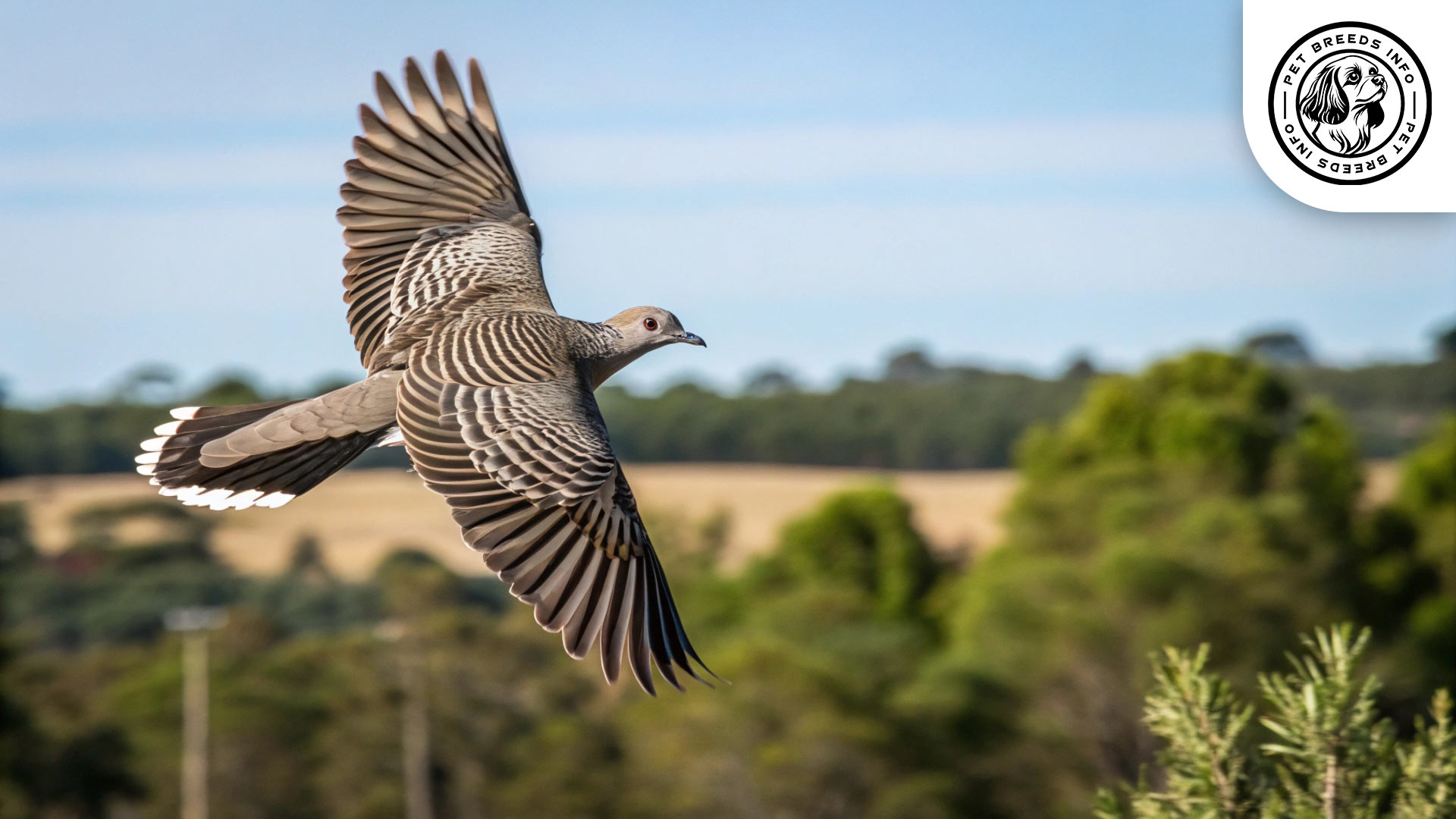
The Zebra Dove has small, rounded blue-gray eyes with a thin blue orbital ring. Its beak is slender, slightly curved, and bluish-gray in color.
The tail is relatively long and pointed, aiding in balance and flight maneuverability. The legs and feet are pinkish-red, complementing its delicate frame.
Read More: Barb Pigeon
Personality and Temperament
Zebra Doves are known for their gentle and calm disposition, making them excellent pet birds. They are intelligent and can quickly learn to recognize their owners.
They have a moderate energy level and enjoy short flights around their enclosure or home. While they are not particularly playful, they enjoy foraging and pecking at seeds on the ground.
Zebra Doves form strong bonds with their owners and prefer a peaceful and quiet environment. They are social with humans but can be shy at first. With time and patience, they become affectionate and friendly.
Due to their mild nature, they coexist well with other non-aggressive bird species. They are not aggressive and do not have dominant territorial instincts.
They are sensitive to sudden changes in their environment or loud noises, which may cause stress or anxiety.

Care and Maintenance Requirements
Zebra Doves require daily exercise by allowing them space to fly within an aviary or a well-ventilated cage. They prefer a quiet space with low stress levels.
They adapt well to apartment life as long as they have enough space to move around, but they thrive best in outdoor aviaries with natural sunlight.
Their grooming needs are minimal. They preen themselves regularly, but they appreciate a light misting with water for extra cleanliness. Providing a shallow dish with water for bathing keeps their feathers in good condition.
They are sensitive to extreme cold and sudden temperature fluctuations. Keeping them in a temperature-controlled environment protects them from illnesses.
Regular hygiene practices such as cleaning their enclosure, ensuring fresh food and water, and trimming their nails as needed are essential for their well-being.
Diet and Nutrition
Zebra Doves primarily eat small seeds, including millet, canary seed, and other grains. They also consume fresh greens and occasionally small insects for added protein.
A high-quality commercial dove food mix provides balanced nutrition. Supplementing with finely chopped vegetables and calcium sources such as cuttlebone ensures optimal health.
Foods to avoid include chocolate, avocados, caffeine, and overly salty or fatty foods, as these can be toxic to birds.
They should be fed small portions twice a day, ensuring food is always available but avoiding overfeeding.
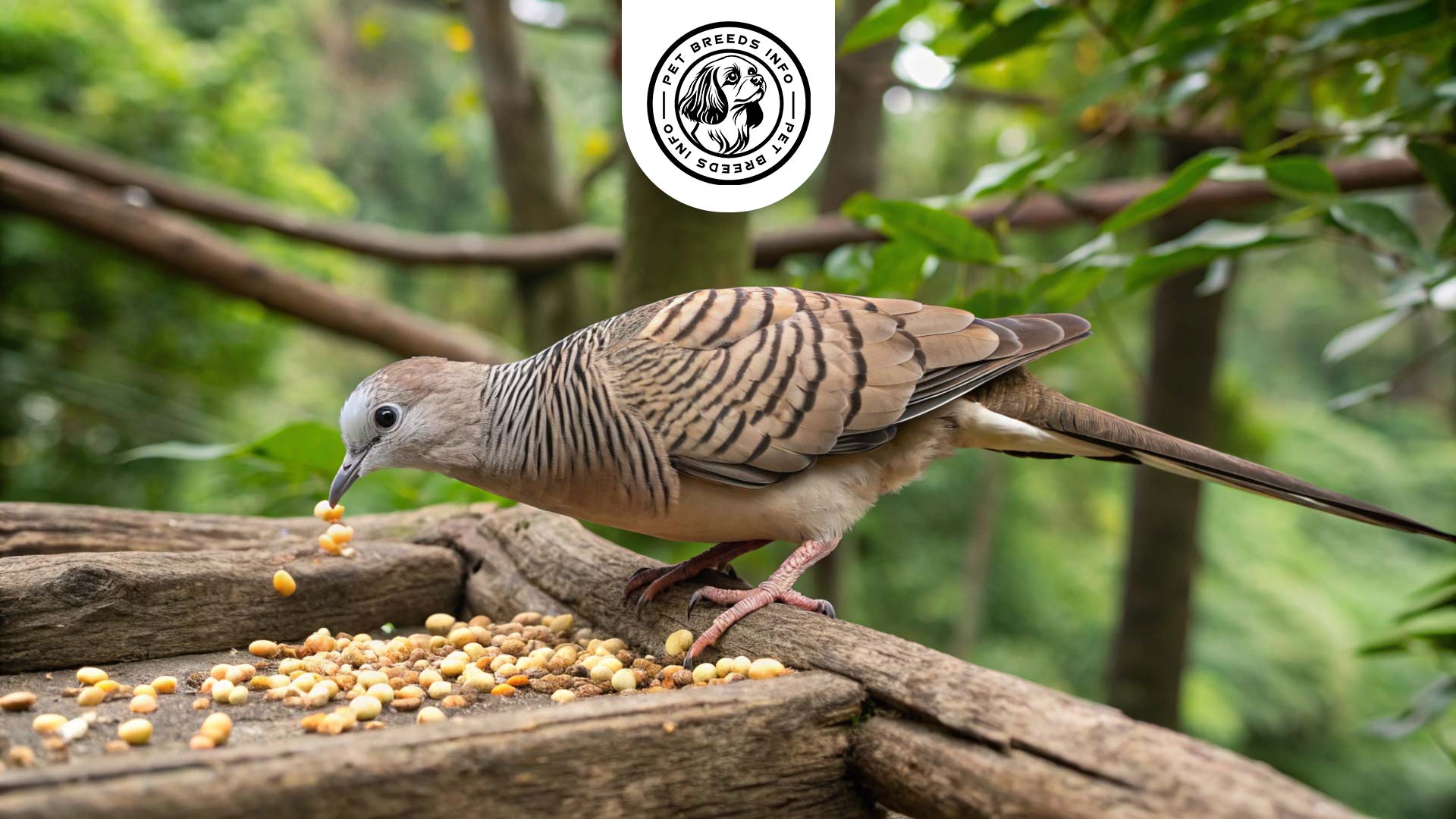
Health and Common Medical Issues
Zebra Doves are generally hardy birds but can be susceptible to respiratory infections, mites, and bacterial diseases if not maintained in a clean environment.
They may develop nutritional deficiencies if their diet lacks essential vitamins and minerals. Providing a balanced diet helps prevent health issues.
With proper care, Zebra Doves have an average lifespan of 7 to 12 years, though some can live longer in captivity with excellent care.
Regular checkups with an avian veterinarian help detect and manage potential health problems early.
Read More: Blue and Gold Macaw Bird
Training and Behavior Management
Zebra Doves are easy to train with consistency and gentle handling. They respond well to positive reinforcement and can be tamed over time.
They learn basic routines quickly, such as feeding schedules and recognizing their owners. With patience, they can become comfortable with gentle hand-feeding.
Early exposure to humans helps in socialization. Avoid forcing interactions, as they prefer to bond gradually.
Providing a safe and enriching environment with perches and a varied diet helps maintain good behavior.
Interaction with Other Animals and Humans
Zebra Doves interact well with children, provided they are handled gently. They do not tolerate rough handling but are peaceful companions for responsible pet owners.
They are highly compatible with other small birds, particularly doves and finches, as they do not display aggressive territorial behavior.
They are great for individuals who prefer quiet and gentle pets. Families with calm environments will also find them suitable.
They develop strong bonds with their human caretakers but maintain an independent nature.

Price and Availability
The cost of a Zebra Dove varies depending on the country and breeder, typically ranging from $20 to $100 per bird.
When adopting or buying, look for reputable breeders or shelters to ensure ethical sourcing and healthy birds.
Avoid purchasing from mass breeders who do not prioritize proper care and breeding conditions.
Read More: Black-faced Firefinch
Conclusion and Final Thoughts
Zebra Doves are ideal pets for beginner bird owners due to their low maintenance and peaceful temperament. They are well-suited for individuals or families looking for a quiet, easygoing companion.
They thrive in a calm environment with a balanced diet and minimal grooming needs. Their soft and melodious calls make them a joy to keep.
Potential owners should consider their sensitivity to environmental changes and ensure they provide a stress-free habitat. With proper care, these birds can provide companionship for many years.
FAQ
What is a Zebra Dove known for?
Zebra Doves are known for their distinctive barred plumage and soft cooing sounds.
Where do Zebra Doves come from?
They originate from Southeast Asia, including Indonesia, Malaysia, Thailand, and the Philippines.
Are Zebra Doves good pets?
Yes, they are known for their gentle and calm disposition, making them excellent pets, especially for beginners.
What do Zebra Doves eat?
They primarily eat small seeds, fresh greens, and occasionally small insects.
How long do Zebra Doves typically live?
With proper care, they have an average lifespan of 7 to 12 years.
